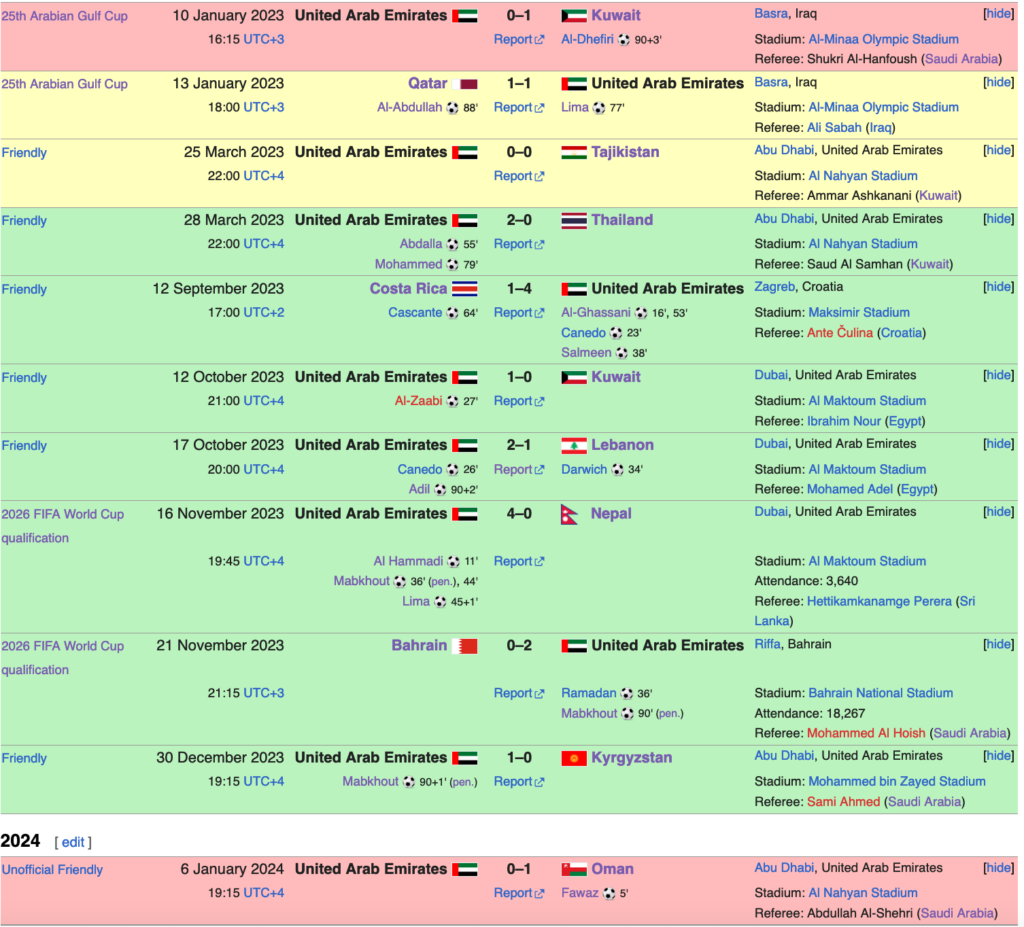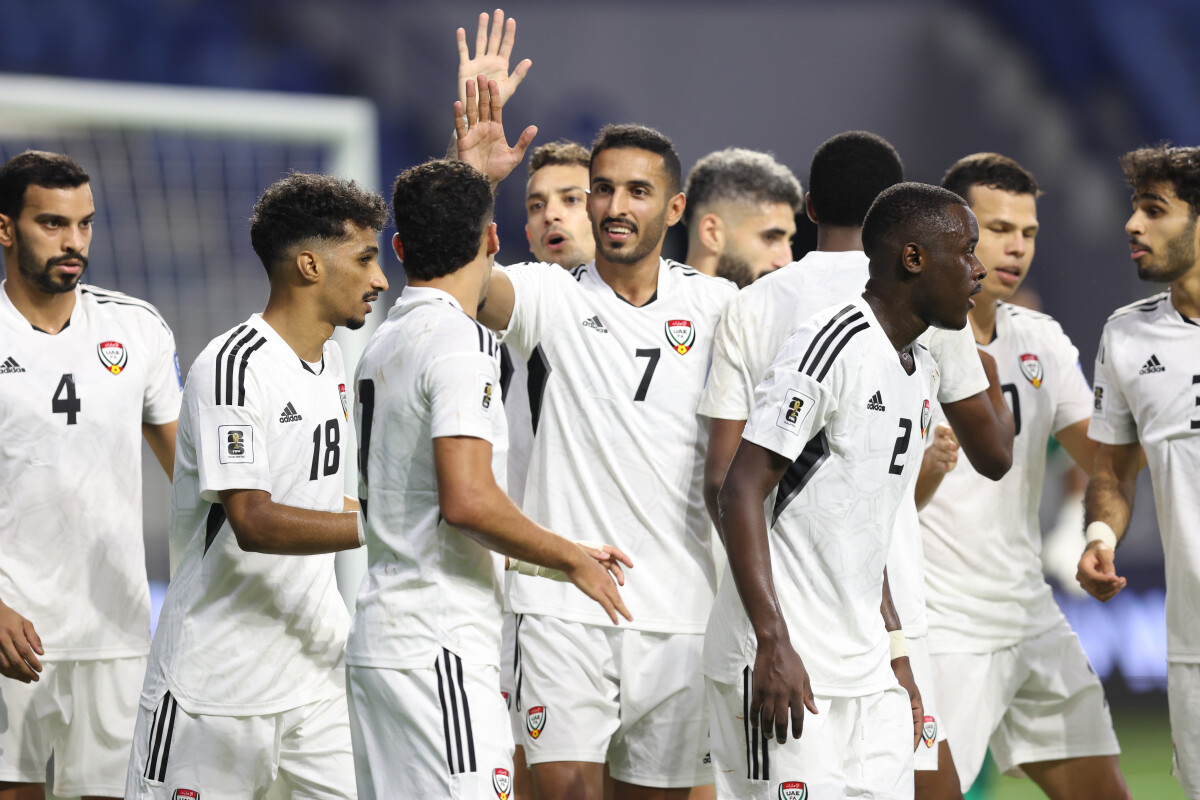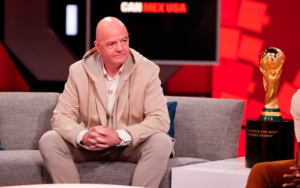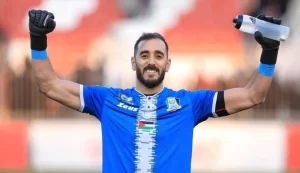Receive news, analysis, and other content straight to your inbox by subscribing to Football Palestine (free or paid), here.
Over the past decade, The United Arab Emirates have been one of the best sides in Asian Football. Eyal Zayed have made the final round of World Cup qualification for the 2014, 2018, and 2022 editions. Most recently they took Australia to the limit in a playoff but ultimately finished just short of their goal of going back to the big dance for the first time since 1990.
On the continent they have made the semifinals of the Asian Cup in 2015 and 2019. The consensus amongst followers of the UAE is that the team peaked in 2016 and has been in something of a managed decline since then. Only Ali Mabkhout and goalkeeping duo Khaled Eisa and Ali Khasif remain of the Golden Generation. Stability has been in short supply with the national team cycling through six different coaches in the past cycle- including two stints with Bert van Marwijk.
There are several questions surrounding UAE who have been unconvincing but effective under Paulo Bento this year. Can a new generation lead this team to the semifinals again? Or should expectations be tempered?
Recent Results:

Manager: Paulo Bento
Five Games. Five Wins. Including a perfect start to World Cup qualifying that featured a 4-0 home win over Nepal and a 2-0 away win over Bahrain. If anything Bento has bought himself valuable time by avoiding defeat in his first five games.
Bento is a meticulous student of the game and his detailed approach is what got him his last job as Korea Manager. UAE approached Bento in the hopes that his style and vision could bring through a new generation of Emirati stars.
He is also one to put the team over any individual stars. If a certain player does not fit the system then he won’t start or might not even get called up. Lee Kang-In, for example, was out of favour until Bento found a way to integrate him in the lead up to the 2022 World Cup.
Style of Play:
Paulo Bento’s style of play will sit well with those that like proactive football. The Portuguese manager has been focused on maintaining possession and building up attacks from the back. He is almost religiously against any tactical changes that might lead his team to play reactively prioritizing style over substance.
The team found a way to eke out victory in their toughest test (the 2-0 victory vs Bahrain) but it was far from a classic Bento performance. The Emiratis were outshot 10-4, and mustered only a single shot on target. Bahrain won nine corners, the UAE won none and possession was in favor of the hosts 58-42%.
Squad:

Key Players:
Caio Canedo provides the stardust in the side and his quality has lifted an Emirati attack bereft of the stars of yesteryear. Reports of Ali Mabkhout’s demise have been greatly exaggerated and with three goals in the first two competitive games it seems likely that he will, once again, be the main source of goals for the team.
If this team is going to go far it won’t be the flash of attacking players that gets them there it will be their ability to keep clean sheets. Khalifa Mubarak is the only defender with any sort of experience to speak of, the rest of the projected back line have a combined 19 caps between them.
Inexperience is something of a theme in this squad. Only five players included in the squad took part in the 2019 AFC Asian Cup. Khaled Eisa, Khalifa Mubarak, Ali Salmeen, and Ali Mabkhout are the spine of the team and will be critical to any success in Qatar.
Final Take:
The UAE are in better shape than they were following the Gulf Cup last year where they were absolutely rudderless. Bento has his ideas and knows where he wants to take this team; the only question is will he be given time. An opening match against Hong Kong should ease the pressure but the matches only get more challenging from there on out. There is a much needed youth revolution taking place but it remains to be seen if the UAEFA is willing to accept a mediocre result at the Asian Cup in service of the long term good of the national team.
Palestine and Iran are two sides that are far more settled and experienced which will really push UAE to its absolute limit and could perhaps prevent them from finishing in the top two qualifying spots. A third place finish might not be the worst thing in the world and could set up a Round of 16 match with the Group A winner and an easier path to a third straight semifinal.




